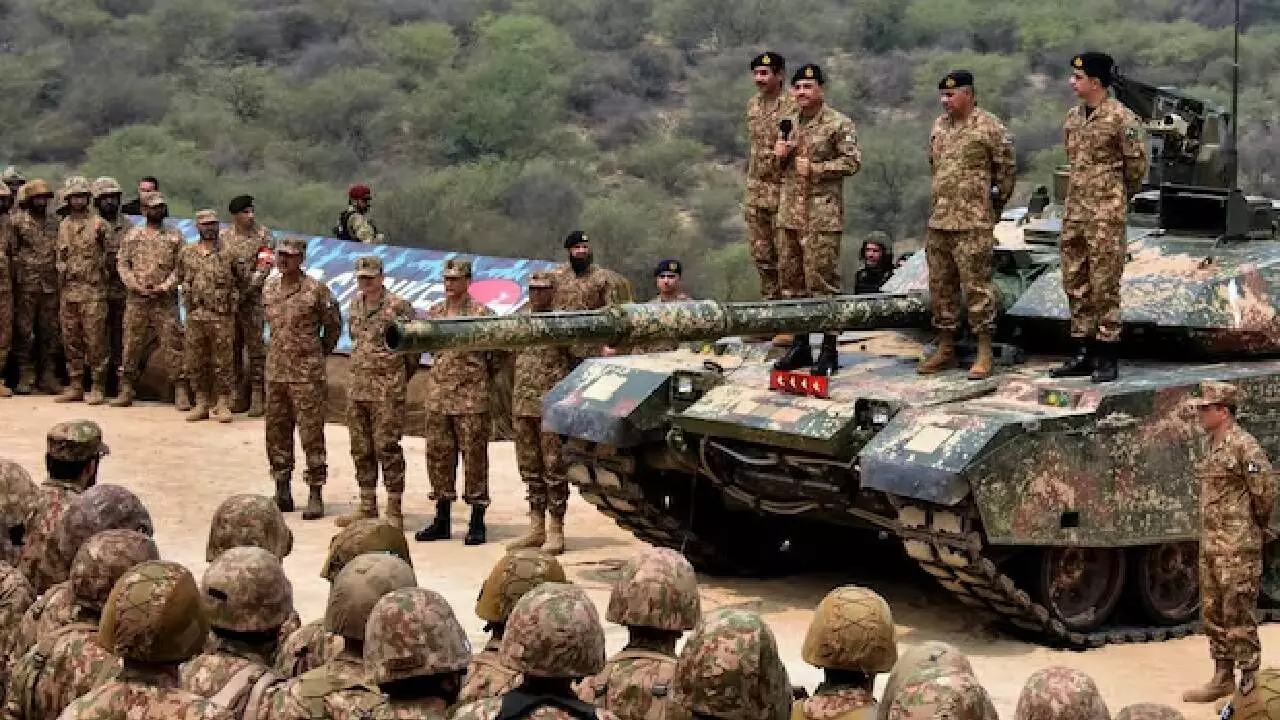India, Pakistan Trade Military Strikes After Kashmir Attack
India and Pakistan exchanged military strikes following a deadly Kashmir attack that killed 26 people. Tensions escalate as both nations claim retaliation, raising fears of broader conflict.
India, Pakistan Trade Military Strikes After Kashmir Attack

Tensions between India and Pakistan flared again as both countries launched military strikes following a deadly militant attack in Kashmir last month that left 26 dead.
India announced early Wednesday that it had carried out a “precise and restrained” operation targeting what it described as “known terror camps” in Pakistan. Indian officials later said the strikes hit nine locations across Pakistani territory in the most extensive cross-border incursion since the 1971 war. New Delhi emphasized it avoided civilian or military targets to avoid escalation.
However, Pakistan’s military claimed 26 civilians were killed in the Indian airstrikes and labeled the attack an “act of war.” Islamabad said it responded by shooting down five Indian jets, though India has not confirmed any losses.
Pakistani Defense Minister Khawaja Asif told Bloomberg TV that the strikes were defensive, saying, “If India attacks, we’ll respond. If India backs down, we’ll definitely wrap up.” He added Pakistan had no intention of initiating conflict.
The recent exchange mirrors the 2019 crisis, when a suicide bombing in Kashmir led to retaliatory airstrikes and the downing of an Indian jet. That episode de-escalated after several weeks, a pattern analysts say may repeat, despite the high risks.
Indian Foreign Secretary Vikram Misri said the April 22 attack in Pahalgam was intended to stoke communal tension and undermine development in Kashmir. India claimed its operation, dubbed Operation Sindoor, struck seven sites deep inside Pakistan, including Bahawalpur, Muridke, and Muzaffarabad.
In retaliation, Pakistan closed its airspace, and Prime Minister Shehbaz Sharif condemned India’s actions as a “cowardly attack,” asserting the country would respond appropriately. Pakistan’s Foreign Ministry said women and children were among the dead.
Markets in both countries reacted sharply. India’s Nifty 50 index fluctuated before recovering, while the rupee slipped 0.2%. Pakistan’s KSE-30 fell as much as 6.1% before trimming losses.
Despite the heightened rhetoric, experts see signs of restraint. Rajeswari Pillai Rajagopalan of the Australian Strategic Policy Institute noted both nations have historically avoided full-scale war since going nuclear in 1998, even after repeated clashes.
US involvement has ramped up, with India’s National Security Advisor Ajit Doval briefing US Secretary of State Marco Rubio. President Trump expressed concern, saying from the Oval Office, “They’ve been fighting for a long time. I just hope it ends very quickly.”
Meanwhile, India’s decision to suspend the Indus Waters Treaty has worsened relations. Pakistan accused India of halting the flow of water from the Chenab river, vital for agriculture.
Since gaining independence in 1947, the two nuclear-armed neighbors have fought several wars over Kashmir. The current standoff underscores the volatility of the region, where even brief escalations risk spiraling into broader conflict.
Both sides have demonstrated military readiness in recent days—Pakistan with missile tests and India with mock drills across several states.
As tensions simmer, the international community watches closely for signs of further escalation—or diplomacy.

